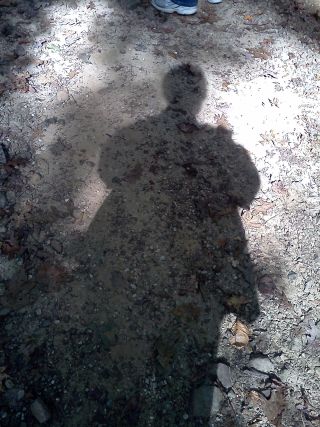Fear
The Power of Hate and Its Consequences
A Personal Perspective: To deal with hate, we have to understand it at its root.
Posted February 16, 2024 Reviewed by Lybi Ma
What is hate? Why does it have so much power—even to run someone’s entire life and destroy the lives of others?
To understand it, we have to define it at its root. We think of hate in its simplest form—anger, vengeance, and violence. Sometimes, it runs much deeper than that. We see the damage it does, like mass shootings and domestic violence. We fear it, and, therefore, look only as deep as its outward signs.
But we will never end terrible behaviors based on hate if we don’t even understand it. Often, in manifestos written by mass murderers, their messages are filled with hate. Looking a little deeper, we find that people hate because people fear. They fear that other races are trying to take over America. They fear what will happen to them. They fear that they will lose jobs, money, power, or prestige if other races were to be in charge.
But what made them hateful of other races or sexualities or gender-divergent people? Again it is fear. Fear of difference. Fear of others who do not authenticate sameness. If you are different what does that make me?
Hate is fear of vulnerability, you might shame me for my deepest thoughts and feelings. Hate is fear of the loss of control—that means I might be powerless over my life and the perception I have that I can control others. Hate is the memory of violence perpetrated by another person who invalidated my personhood—and who I think made me distrust all of life, causing a fear of life. When hate turns violent, hate becomes a shield from fear—I don’t have to feel the fear. I can replace it with hate that hardens rather than softens my heart.
However, that hate doesn’t want to know about the hidden fear. If you ask hate: “What are you so afraid of?” It wouldn’t answer. It wouldn’t even think about answering. And that is its power. It does not seek change. It does not seek self-reflection or awareness. It seeks validation. It seeks other people who feel the same way about otherness. It also seeks ways to self-validate, written material that validates, and more so-called reasons to hate. They want proof that hate is valid and that it can control others.
The reason that hate has the power to control one’s behavior is because it denies that there is any other source for the hate than the other. They cause me to hate. They are the problem. Of course, I hate them, they deserve to be hated.

The consequence of hate, however, is twofold. On the one hand, hate has many consequences for people harmed by hate. Domestic hate may cause physical harm or even death. Active hate on the streets harms and kills others in the community. These are the obvious consequences of hate.
But the other consequence is less obvious. Hate creates an empty hole in the individual who hates. And the only thing that can fill that hole is more hate. Everything else is invalid and cannot prove the need for hate. The more one begins to feel that emptiness, the more one has to hate—that empty hole is frightening. The more one fears it, the more one builds hate rooted in that fear.
We must find a way not to act on the feeling of hate. Since we don't have hate management groups and classes, anger management work may be a start. Hate without action has the power to help us reflect on that feeling, just as an intense feeling.
If we, instead, simply act out the hate, there is less and less room for self-reflection. However, feeling that feeling and not acting on it may become uncomfortable, forcing us to do something about it. Perhaps even go to therapy.
Once that is done, we must develop the courage, and the bravery to begin to look under the hate and to find the fear. Once we find the fear, we can examine it for its source and begin to untie the entangling ropes that hold us down, and hold us back from having the life we want—the life we think others want or have taken from us. And choosing to take the risks to have that life means that we are not so afraid, and therefore, not so lost in hate. Having that life is all we want, after all.
References
We hate what we fear: Interpersonal hate from a clinical perspective. Springer International. 2016.
Hate crime supporters are found across age, gender, and income groups and are susceptible to violent political appeals. PNAS. 2022


